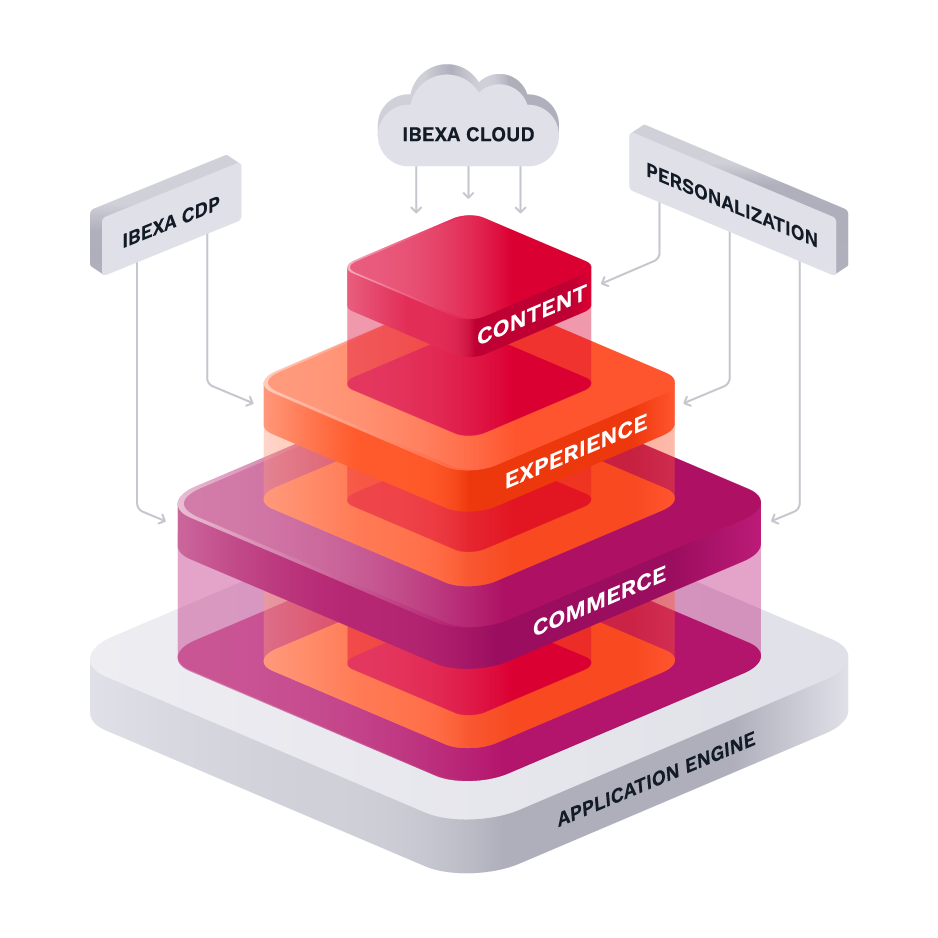Defining content management
Although almost all businesses produce digital content, many don't fully grasp what content management involves, or why it's such an influential discipline within e-commerce, or which features define excellent Content Management Systems (CMS).
Let's start with the basics. Content management refers to the group of processes involved in producing, distributing, and editing digital content. That includes everything from creating or sourcing content to optimizing, managing, and publishing it.
In essence, it is about the way your organization organizes information and distributes it to a wide audience, usually across a range of different channels.
Perhaps it’s a good idea to take a step back and examine how we define content. In this regard, it’s helpful to contrast content with data. Data is raw, unedited, and (when collected properly) immune to personal bias. On the other hand, content is created and edited by humans in a subjective manner. It is drafted, shaped, and refined to fulfill certain goals - typically a specific set of business objectives.
When creating content, we're always thinking about the intended audience, structure, format, and purpose. With data, we're trying to collect accurate information rigorously and scientifically.


Web content management deals with evolving content
Consider the records for a sales transaction. The data relating to that transaction is fixed and unquestionable. It won’t ever change. For instance, the value of the sale will always remain the same. It’s a concrete value. However, if you use that sales data to draft a report that measures sales trends over the last year, you’re creating content.
Why? Because you're introducing editorial processes, writing for a particular purpose and audience, and developing something that can and will change as new information becomes available. You’re interpreting the data to create content.
To derive value from your content, you need to think about how you create, edit, and deliver it. You need a well-defined content strategy, established workflows and, most likely, a dedicated CMS.
Why is digital content management critical?
Before we go into greater depth on the topic of CMSs, we’d like to take a moment to emphasize why digital content management is so important.
One of the main reasons content management has become a key discipline within e-commerce is that it requires a distinct set of skills and several different skill sets.
There are the skills needed to write, edit, and optimize content. Then there are the skills required to publish and deliver content so that it benefits from maximum impact.
Digital technology has exaggerated the differences between these two groups. A copywriter or graphic designer occupies an entirely different role to that of an SEO expert or marketing strategist. However, all these individuals must work together if they're to create and deliver valuable content.
Essentially, web content management is vital because it provides businesses with processes, tools, and technologies that enable employees to collaborate efficiently.
Additionally, it benefits B2B companies by:

● Ensuring the sales team always have relevant content for their prospects.
● Enabling sales reps to target potential customers with content tailored to their location, industry, size, etc.
● Helping to make sure that all marketing material is up-to-date and brand-aligned.
● Allowing employees to match content to customers based on where they are in the buyer journey.
A look at Content Management Systems (CMSs)
Content Management Systems are the frameworks in which these collaborative processes, tools, and technologies are centralized. They are software that offers organizations all the functionality they need to create, edit, structure, store, publish and share content.
However, it's important to note that CMSs don't create excellent content on their own. A great CMS doesn't tell you how to make world-class content. For that, you need specialist writers and editors. Instead, it makes doing so easier, more efficient, and more cost-effective.
Even if you're not a digital whizz kid, you'll likely have interacted with a CMS at some point or another. Basic, everyday CMSs that are intended for use by the public are prevalent across the Internet.
What does a CMS do specifically?
So far, we've talked about Content Management Systems (CMS) in general terms as a platform for creating, publishing, and distributing content. But what about the specifics? Typically, a CMS will contain the following features:
Establishing permissions
Who can see, edit, publish, and remove the content
Managing storage
How the content is stored and whether it's published, still in draft form, or has been archived
Facilitating searches
How users, creators, and editors retrieve content. How content is grouped for simple and efficient management
Controlling content dependency
How pieces of content are linked and used by one another. How actions relating to one piece of content will affect another piece of content
Recording edits
How content has been altered, what it looked like in the past, and whether previous versions can be republished
Translating content
Translation of content into other languages facilitates easier expansion into new markets and locations.
An effective CMS gives your organization greater control over the content it publishes and introduces checks and balances to ensure mistakes aren’t made. For instance, it prevents key content from being deleted accidentally or published before it’s due.
What makes a good Content Management System?
Not all CMSs are created equal. Like all software, some platforms are better than others on specific functionalities. That leads us on to our final question: what makes a good CMS?
We would argue that the following features characterize an effective CMS:
Greater customization
You should have the power to personalize the workflows and permissions involved in content creation and distribution so that they suit your business
Enhanced security
When individuals collaborate, they’re not always on the same page. A CMS should prevent mistakes occurring by introducing checks and permission restrictions
Easy integration
Modern businesses use a wide variety of digital technologies. An effective CMS must offer problem-free integration with existing IT systems and other business tools
Efficient editing
A CMS must make an editor's life easier. Retrieving, altering, and republishing content should be intuitive and streamlined
Centralized control
Your CMS should enable you to control all aspects of web content management through a single, dedicated interface
Facilitates collaboration
Your content management team should find it easier to work together using a CMS. Efficient workflows can be implemented through a CMS
Ibexa Digital Experience Platform
The idea of content management is not new. It could be argued that libraries are an ancient form of content management. However, digital technology has revolutionized the way we think about, create, distribute, and consume content. As a result, CMSs are becoming an increasingly essential part of the business landscape.
Our modular Digital Experience Platform, Ibexa DXP, contains a module dedicated to your content needs. Ibexa Content empowers you to create impactful content and deliver it via several channels. It makes managing that content efficient and intuitive and gives you the ability to create powerful, targeted campaigns that help you reach new and existing customers.
Likewise, Ibexa Personalization can be used to tailor the distribution of content to different customer segments. This enables you to determine what content your customers see based on various factors, such as location, where they are in the customer journey, and what purchases they’ve made in the past.

The main reason we selected Ibexa DXP is because it is really focused on publishing content as well as being customizable.
Why Ibexa is your ideal choice
Ibexa is ideal if you want to begin transforming your business but don't want to commit to a large initial expenditure. Based on a modular design, Ibexa DXP ensures that you can add new capabilities when you need to. This also implies that you can integrate Ibexa Content, Ibexa Experience and Ibexa Commerce with your existing systems and harness the advantages of having an interconnected digital ecosystem.













